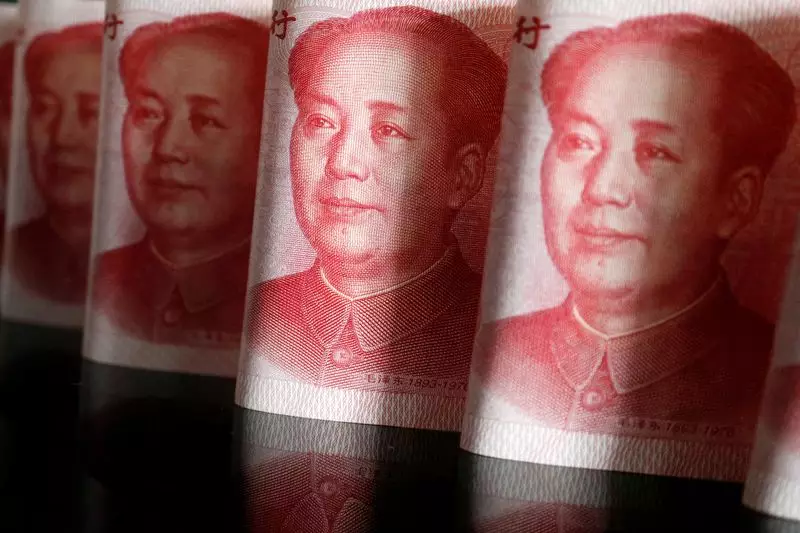The Chinese government is embarking on a significant fiscal initiative by planning to issue approximately 2 trillion yuan (around $284.43 billion) in special sovereign bonds this year. This strategy is projected to serve as a cornerstone of a fresh fiscal stimulus effort designed to counteract rising deflationary pressures and a troubling slowdown in economic growth. This article delves into the implications of these financial measures, the economic context necessitating them, and the potential outcomes as China strives to resuscitate its economy during a challenging post-pandemic recovery phase.
The Ministry of Finance (MOF) will issue 1 trillion yuan in special bonds intended to bolster consumer spending, reflecting an urgent need to encourage domestic consumption amid concerns regarding the sluggish recovery from COVID-19. Given that household consumption forms less than 40% of China’s GDP—significantly lower than the global average—the introduction of these bonds aims to stimulate demand directly. As part of this consumer-focused strategy, the funds raised will also support subsidies for upgrading consumer goods and significant business equipment, pointing towards a dual approach of invigorating consumer spending while also facilitating business growth.
Additionally, the specific allocation of aid—in the form of a monthly allowance of approximately 800 yuan ($114) for families with multiple children—highlights the government’s commitment to social welfare. This initiative aims to not only cushion households financially but also encourage a culture of larger families in response to demographic challenges faced by China.
Another vital component of this fiscal plan involves a second tranche of 1 trillion yuan, aimed at assisting local governments grappling with an overwhelming debt burden estimated at around $13 trillion. These local entities have historically relied on central government support to finance infrastructure projects and other expenditures. The phased approach to alleviating local government debts through sovereign bond issuance is seen as imperative, especially in a climate where return on investments is on a decline.
This bifurcated strategy—focusing on both consumption stimulus and local government aid—illustrates a comprehensive response to the array of issues currently plaguing the economy. However, the underlying challenge persists: too much fiscal spending historically has not translated into sustainable growth, often resulting in inflated levels of local government debt.
As economic growth targets for 2024 hover around 5%, the government recognizes the pressing need to stabilize the faltering real estate market. Policymakers convened during a recent Politburo meeting emphasized the importance of utilizing special sovereign bonds to reinforce government investment and safeguard necessary fiscal commitments. The reality, however, remains stark: a substantial downturn in the property market has eroded consumer confidence and dampened spending.
In response to these mounting pressures, the People’s Bank of China has already initiated proactive monetary policies, including liquidity injections and lowered borrowing costs. While these monetary measures have begun to lift market sentiment by creating expectations for complementary fiscal strategies, the anticipation of fiscal packages remains critical for sustained economic recovery.
In parallel to broad fiscal measures, Chinese authorities are turning their attention to small and medium-sized enterprises (SMEs), which form the backbone of the economy yet are facing challenges in the current climate. By targeting employment subsidies, tax relief, and reductions in operational costs, the MOF exhibits awareness of the essential role SMEs play in economic stability and growth. Enhancing their viability is expected to create jobs and rejuvenate consumer expenditures.
Analysts envision that forthcoming fiscal support will not only address challenges within the housing market but also promote social welfare spending, which is critical for improving living standards among the populace. As Morgan Stanley economists pointed out, while the situation does not warrant a “whatever it takes” approach just yet, the seriousness with which Beijing is addressing deflation and other economic challenges is evident.
China’s forthcoming issuance of special sovereign bonds serves not only as a critical instrument for stimulating the economy but also reflects a broader attempt to navigate the complexities of post-COVID recovery. By simultaneously addressing consumption, local government debt, the real estate crisis, and supporting SMEs, Chinese policymakers are attempting to craft a nuanced solution to an increasingly complicated economic landscape. As such, the effectiveness of these measures will widely determine the trajectory of China’s economic conditions in the near future. The strategic moves made now could pave the way for a revitalized economy or, if mismanaged, lead to further discontent and instability.

